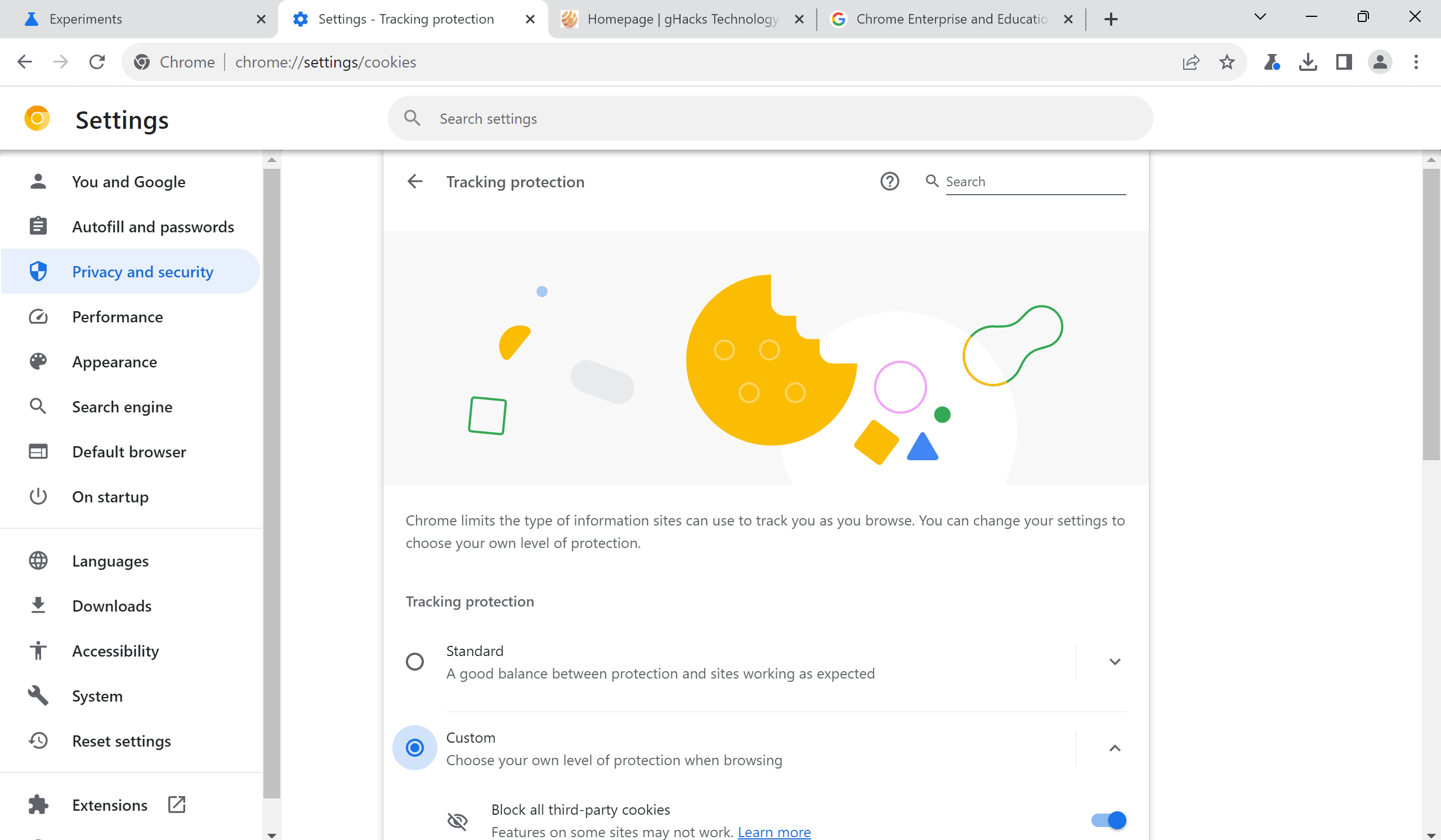Google is in the process of switching on its euphemistically named Privacy Sandbox in Chrome, which, depending on who you ask, is either a step in the right direction, or, the first advertising system baked into a web browser. Next to that, Google is also working on Tracking Protection.
A new experimental flag is available in Chrome Canary that moves the Third-Party Cookies section in the Settings to a Tracking Protection section. Many users, those who have used other browsers such as Firefox, know that these browsers support tracking protection features already.
![]()
Google Chrome's implementation, on the other hand, has little to do with these advanced protective features. For now, it is mostly a name change. A click on Tracking Protection in Chrome displays almost the same options as the Third-Party Cookies section of the settings in Chrome Stable.
There are some differences though. In Chrome Stable, users could set the default third-party cookies behavior to "allow third-party cookies", "block third-party cookies in Incognito mode", or "Block third-party cookies".
Tracking Protection changes this to the two options "Standard" and "Custom". Standard "limits third-party cookies" automatically and blocks third-party cookies in Incognito mode. Google does not reveal the list of exceptions, but explains that users may add temporary exceptions.
Custom contains the option to block all third-party cookies and to send the "do not track" header. These need to be enabled.
The remaining options, preload pages, see all site data and permissions, and customized behaviors, on the Settings page are identical.

The experimental flag hints that it prepares the browser for the next step in Google's plan to deprecate third-party cookies in Google Chrome.
Google plans to disable third-party cookies for 1% of the entire Chrome traffic in January 2024 with the release of Chrome 120. The test excludes most Enterprise end users, unless administrators set policies. Additional information on the planned deprecation is available on the Chrome Developer website.
Old wine in new skins, or something new?
One reason for changing the name from Third-Party Cookies to Tracking Protection may have to do with the deprecation of third-party cookies in Chrome. When the browser stops supporting third-party cookies, it does not make sense to have a setting about Third-Party Cookies anymore in the browser.
Renaming it to Tracking Protection and changing the available options makes sense in this regard. Chrome users who have hoped that Google would implement improved privacy protections may be disappointed though, as it does not look as if this is going to be the case.
Chrome is one of Google's mightiest weapons in advertising and the company will do anything in its power to keep it that way.
Using a different browser, such as Brave, Vivaldi or Firefox, is, from a privacy point of view, the better option.
Thank you for being a Ghacks reader. The post Chrome is getting Tracking Protection, but don't get your hopes up appeared first on gHacks Technology News.

0 Commentaires